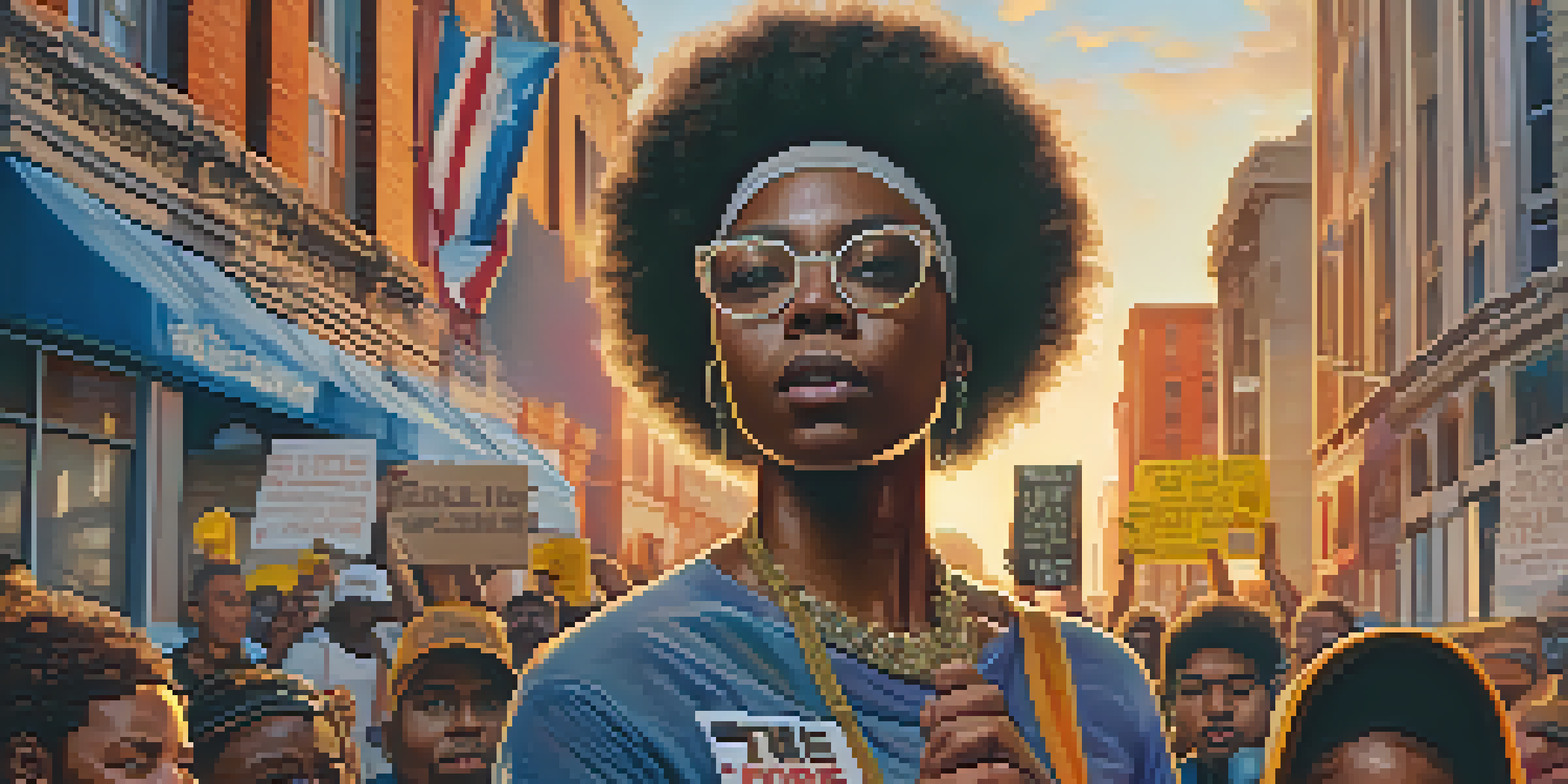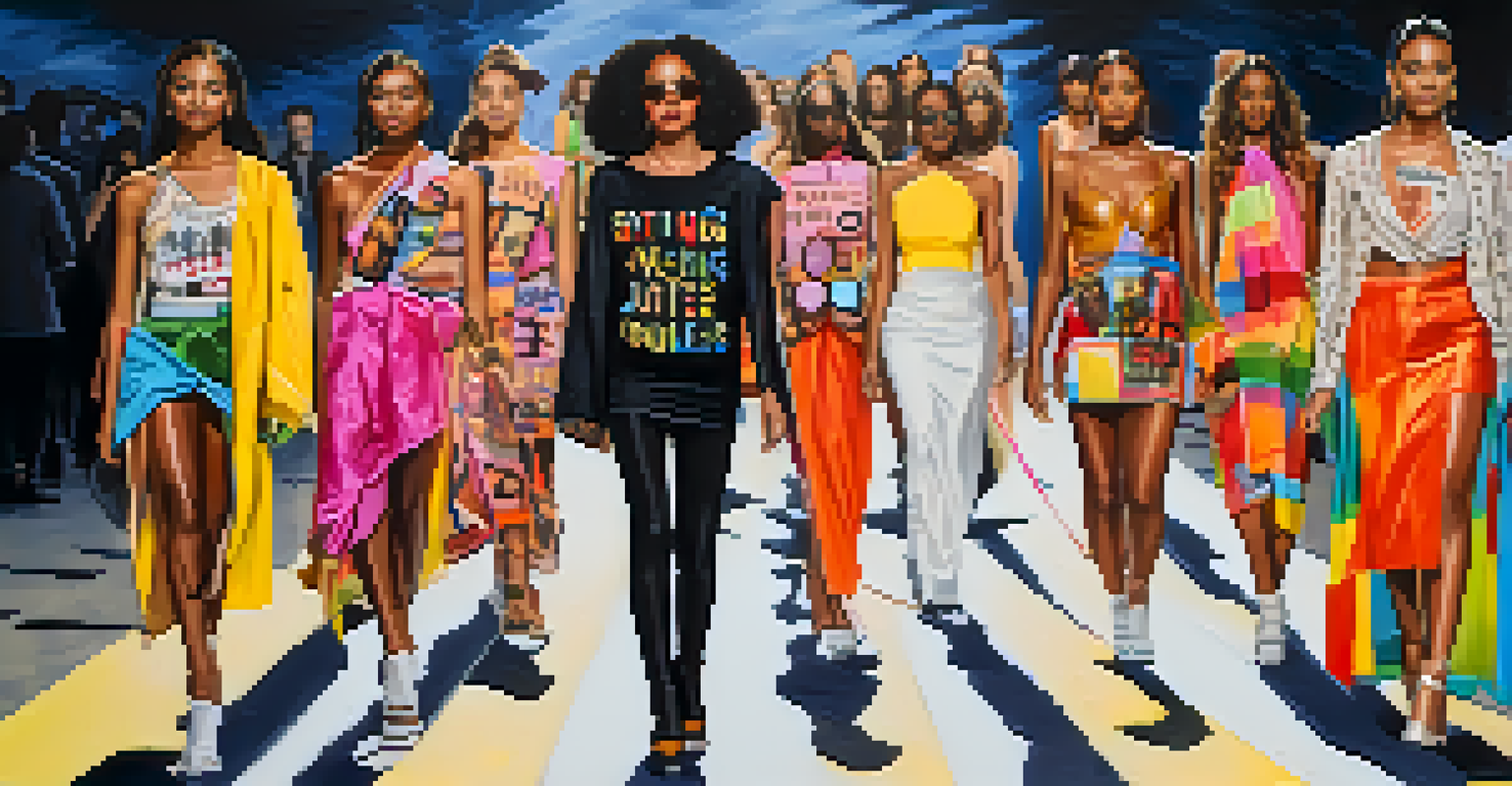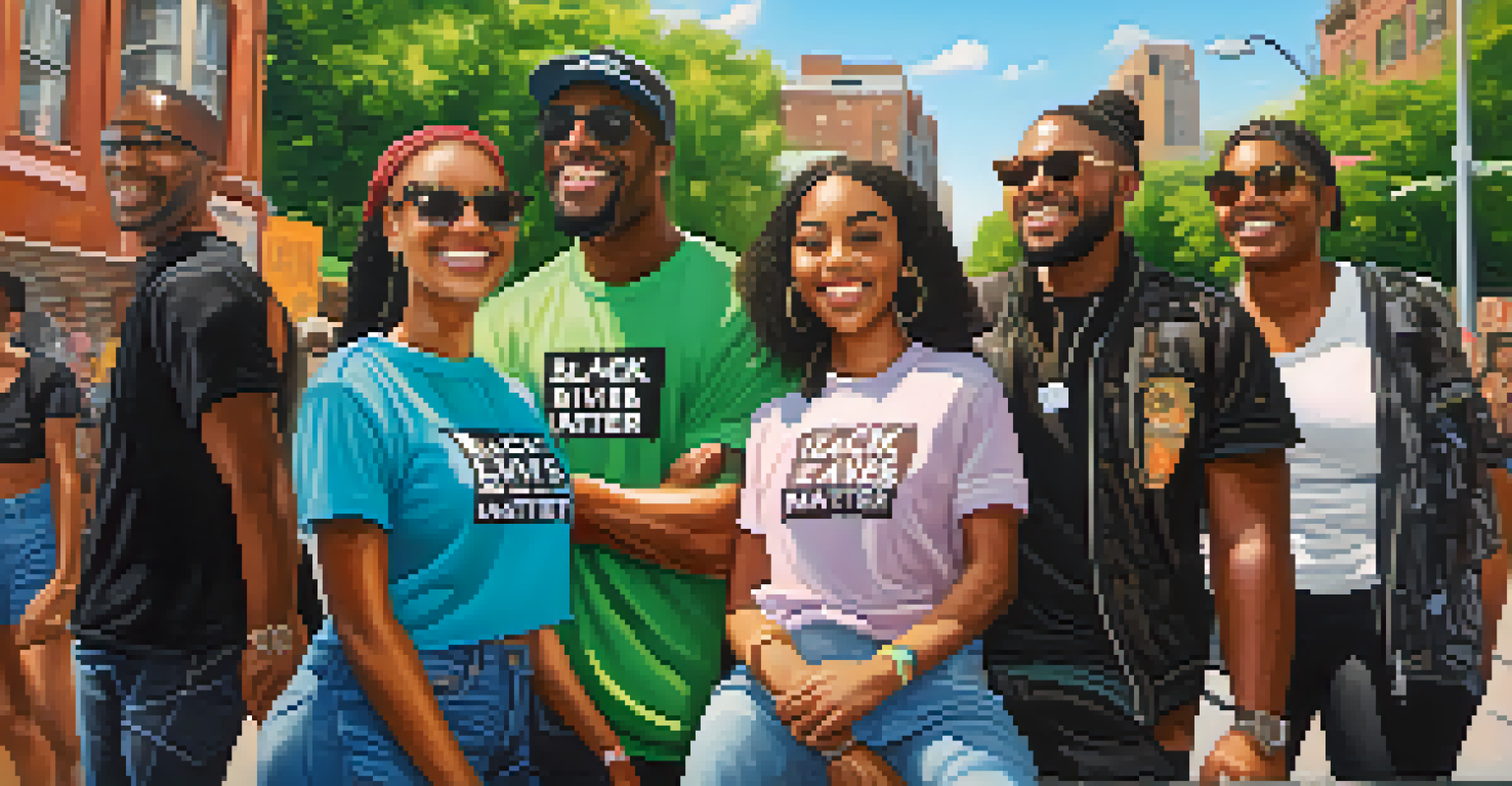The Impact of Black Lives Matter on Fashion Choices

Understanding the Origins of the Black Lives Matter Movement
The Black Lives Matter (BLM) movement began in 2013 as a response to the acquittal of George Zimmerman in the shooting of Trayvon Martin. This grassroots movement quickly gained momentum, becoming a powerful advocate for racial justice and equality. As it spread, BLM not only influenced social and political realms but also began to permeate various cultural sectors, including fashion.
Injustice anywhere is a threat to justice everywhere.
Fashion, often seen as a reflection of society, began to mirror the values and messages promoted by BLM. Designers, brands, and influencers started to embrace activism, using their platforms to raise awareness about racial discrimination and injustices. This shift prompted a reevaluation of what it means to wear clothing that aligns with one’s beliefs.
The origins of BLM created a backdrop for a shift in consumer consciousness, leading to an increased demand for brands that prioritize social justice. As consumers became more aware of the implications of their purchases, fashion choices started to reflect a commitment to support the movement.
The Rise of Activist Fashion and Statement Pieces
In recent years, we've seen a surge in activist fashion, where clothing serves not just as attire but as a medium for expression. Brands like Off-White and Fear of God have incorporated messages of social justice into their designs, encouraging wearers to make bold statements. This trend demonstrates how fashion can transcend mere aesthetics to become a form of activism.

Statement pieces have emerged as essential items in many wardrobes, with slogans and graphics that advocate for equality and justice. For instance, T-shirts and hoodies emblazoned with 'Black Lives Matter' or other empowering messages have become fashion staples. These items not only make a statement but also initiate conversations about racial issues.
Activist Fashion Gains Momentum
The rise of activist fashion reflects a shift in consumer consciousness, with clothing serving as a medium for expressing support for social justice.
As more consumers gravitate toward activist fashion, designers are challenged to innovate and create pieces that resonate with the movement's ethos. This shift has led to collaborations between brands and social justice organizations, further blurring the lines between fashion and activism.
The Influence of Social Media on Fashion and BLM
Social media has played a crucial role in amplifying the voices of the Black Lives Matter movement. Platforms like Instagram and TikTok have become powerful tools for influencers and brands to share their support for racial justice. This online presence has significantly impacted fashion trends, as users showcase their support through their clothing choices.
Fashion is the armor to survive the reality of everyday life.
Hashtags like #BlackLivesMatter and #BlackOwnedFashion have gained traction, promoting brands that prioritize diversity and inclusion. By using social media, consumers can easily find and support businesses that align with their values, creating a ripple effect in the fashion industry. This visibility has encouraged brands to rethink their marketing strategies and product lines.
Moreover, social media allows for real-time conversations about fashion and activism, making it easier to hold brands accountable. Influencers who advocate for BLM often highlight the importance of supporting ethical and sustainable fashion choices, further influencing consumer behavior in a positive direction.
The Role of Black Designers in Shaping Fashion Narratives
Black designers have long played an essential role in shaping the fashion industry, yet their contributions were often overlooked. The BLM movement has brought renewed attention to these creatives, highlighting their unique perspectives and innovative designs. Their voices are now being amplified, leading to a more inclusive narrative within the fashion world.
Brands like Pyer Moss and Telfar have gained recognition for their commitment to celebrating Black culture. These designers not only create stunning pieces but also weave in stories that connect to their heritage and experiences. As they rise to prominence, they challenge the industry to reconsider its traditional standards and practices.
Social Media Amplifies BLM Voices
Platforms like Instagram and TikTok have become essential for promoting racial justice, influencing fashion trends and brand accountability.
The growing recognition of Black designers emphasizes the need for diversity in fashion. By supporting these creatives, consumers can contribute to a more equitable industry, ensuring that fashion reflects a broader range of voices and experiences.
Consumer Consciousness and Ethical Fashion Choices
The impact of BLM has led to a heightened awareness of ethical fashion among consumers. People are increasingly scrutinizing the origins of their clothing and the values of the brands they support. This shift has prompted a demand for transparency and accountability in the fashion industry, with consumers seeking brands that align with their beliefs.
As a result, many brands have started adopting sustainable practices and promoting inclusivity. They are focusing not only on the quality of their products but also on their production processes. This evolution encourages a sense of responsibility and encourages consumers to make informed choices that reflect their values.
Ultimately, this conscious consumerism reshapes the fashion landscape, where ethical considerations become integral to buying decisions. The BLM movement has played a vital role in fostering this awareness, encouraging a collective shift toward supporting brands that prioritize social justice and sustainability.
Fashion Collaborations Supporting BLM Initiatives
In response to the growing demand for social justice, many fashion brands have launched collaborations that support BLM initiatives. These partnerships often result in limited-edition collections, with proceeds going to organizations fighting for racial equality. This approach not only raises funds but also elevates the conversation around the movement.
Brands like Adidas and Nike have collaborated with activists and artists to create pieces that resonate with the BLM ethos. These collaborations serve as powerful reminders of the role that fashion can play in advocating for change. They also highlight the potential for fashion to unite communities around shared values and causes.
Black Designers Reshape Fashion
The BLM movement has highlighted the contributions of Black designers, leading to a more inclusive narrative and greater recognition within the fashion industry.
By participating in these collaborations, consumers not only express their support for BLM but also contribute to meaningful change. This trend exemplifies how fashion can be a vehicle for activism, showing that style and social consciousness can go hand in hand.
The Future of Fashion in the Context of BLM
As the Black Lives Matter movement continues to evolve, so too will the fashion landscape. The conversation around racial equity and social justice is likely to remain at the forefront, influencing how brands approach their designs and marketing strategies. This ongoing dialogue encourages the fashion industry to foster inclusivity and diversity in all aspects.
The future of fashion will likely see an even stronger emphasis on ethical practices and community engagement. Brands that prioritize social responsibility will not only attract conscious consumers but also set new standards within the industry. This shift could lead to a more equitable fashion landscape where all voices are valued.

Ultimately, the impact of BLM on fashion choices signals a broader cultural shift. As consumers and brands continue to advocate for change, the intersection of fashion and activism will remain a powerful force, reshaping the industry for years to come.